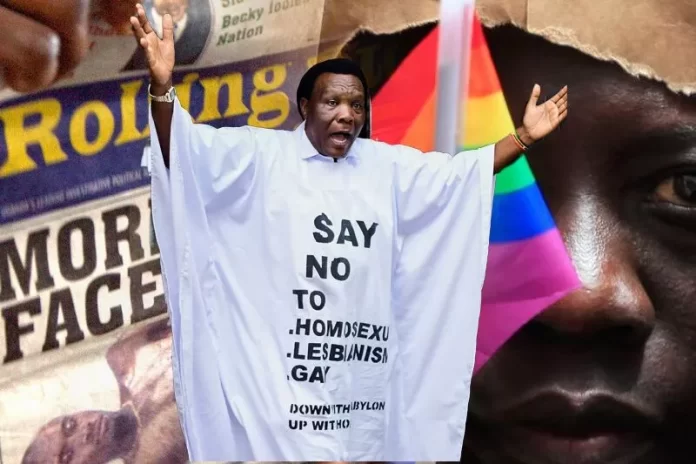Law could be the first to criminalise identifying as lesbian, gay, bisexual, transgender and queer (LGBTQ): Rights Watch.
Uganda’s parliament has passed sweeping antigay legislation that proposes tough new penalties for same-sex relationships and criminalises anyone identifying as LGBTQ.
While more than 30 African countries, including Uganda, already ban same-sex relationships, the new law passed on Tuesday appears to be the first to outlaw merely identifying as lesbian, gay, bisexual, transgender and queer (LGBTQ), Human Rights Watch said.
“The ayes have it,” Parliamentary Speaker Anita Annet Among said after the final vote, adding that the “bill passed in record time”.
Legislators amended significant portions of the original draft law, with all but one speaking against the bill. Supporters of the tough legislation say it is needed to punish a broader array of LGBTQ activities, which they say threaten traditional values in the conservative and religious East African nation.
The legislation will now be sent to President Yoweri Museveni to be signed into law.
Museveni has not commented on the current legislation but has long opposed LGBTQ rights and signed an anti-LGBTQ law in 2013 that Western countries condemned before a domestic court struck it down on procedural grounds. Nevertheless, the 78-year-old leader has consistently signalled he does not view the issue as a priority and would prefer to maintain good relations with Western donors and investors.
Discussion about the bill in parliament was laced with homophobic rhetoric, with politicians conflating child sexual abuse with consensual same-sex activity between adults.
“Our creator God is happy [about] what is happening … I support the bill to protect the future of our children,” legislator David Bahati said during the debate on the bill.
“This is about the sovereignty of our nation, nobody should blackmail us, nobody should intimidate us.”
In addition to same-sex intercourse, the law bans promoting and abetting homosexuality as well as conspiracy to engage in homosexuality.
Violations under the law also involve steep penalties, including death for “aggravated” homosexuality and life in prison for gay sex. Aggravated homosexuality involves gay sex with people under 18 years old or when a person is HIV positive, among other categories, according to the law.
In recent months, conspiracy theories accusing shadowy international forces of promoting homosexuality have gained traction on social media in Uganda.
Frank Mugisha, executive director of Sexual Minorities Uganda, a leading gay rights organisation whose operations were suspended by authorities last year, told the AFP news agency earlier this month that he had already been inundated with calls from LGBTQ people over the new bill.
In an opinion submitted to a Ugandan parliamentary committee earlier this month, Human Rights Watch said the new law “would violate multiple fundamental rights guaranteed under Uganda’s Constitution and international human rights instruments to which Uganda is a party”.
“Criminalization of consensual same-sex conduct contributes to a climate in which violence and discrimination against LGBT people is widespread,” the organisation said.
Last week, police said they had arrested six men for “practising homosexuality” in the southern lakeside town of Jinja. Another six men were arrested on the same charge on Sunday, according to police.
“One of the most extreme features of this new bill is that it criminalizes people simply for being who they are as well as further infringing on the rights to privacy, and freedoms of expression and association that are already compromised in Uganda,” said Oryem Nyeko, Uganda expert at Human Rights Watch.













